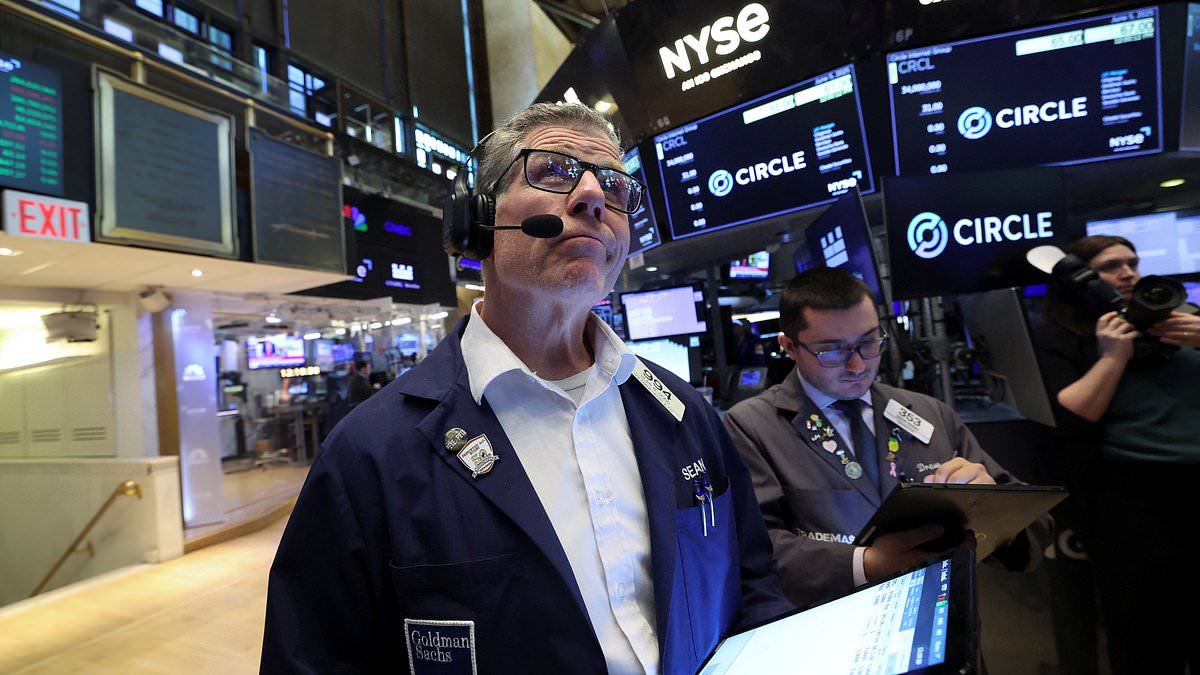Consumer prices ticked up last month, rising 2.4 percent in May compared to the same time last year.
Although it is a slight increase on the month before, when prices rose 2.3 percent, the increase of 0.1 percent suggests inflation is actually slowing as it is a smaller jump than previous months.
The latest figures brought a sigh of relief to Wall Street where analysts had forecast prices to rise closer to 3 percent.
The S&P 500 rose 0.4 percent and the Nasdaq jumped 0.6 percent in future trading on the back of the news.
The Department of Labor statistics are a surprise to some economists who have expected Trump’s tariffs to have more of an inflationary effect so far.
Major retailers such as Walmart have said they are raising prices to offset the cost of tariffs.
However, the latest report shows that other major consumer prices are down, including smartphones which fell 1.6 percent and airline fares down 2.7 percent.
Traders now believe there is a 75 percent chance the Federal Reserve will cut interest rates by September, compared to 60 percent yesterday, Bloomberg reported.


Some analysts suggest tariffs are feeding into inflation less than expected because businesses are reluctant to pass on price rises to their customers and swallowing the costs themselves.
‘Ultimately, if tariff rates are up, and core goods prices aren’t up by as much as the consensus thought it implies more margin squeeze at retailers and less price pass through,’ Neil Dutta from Renaissance Macro told Bloomberg.
